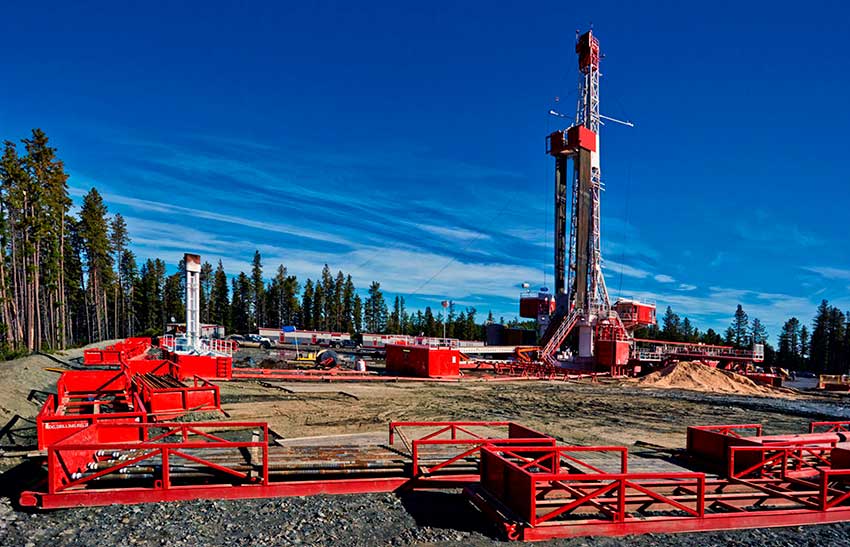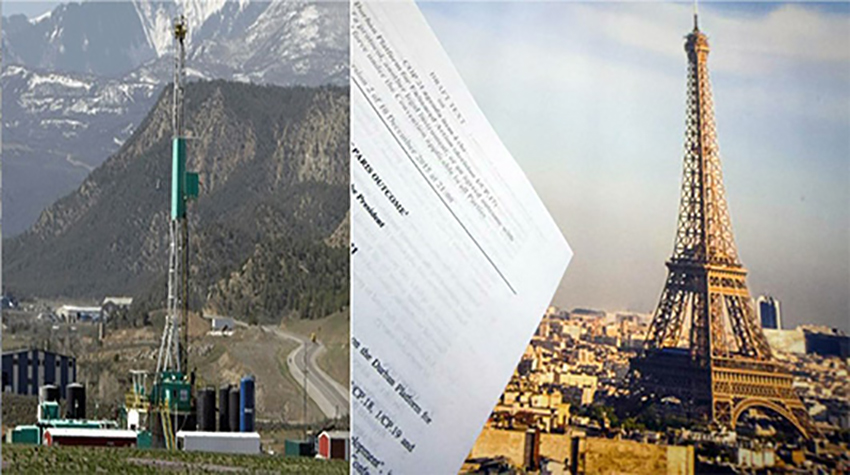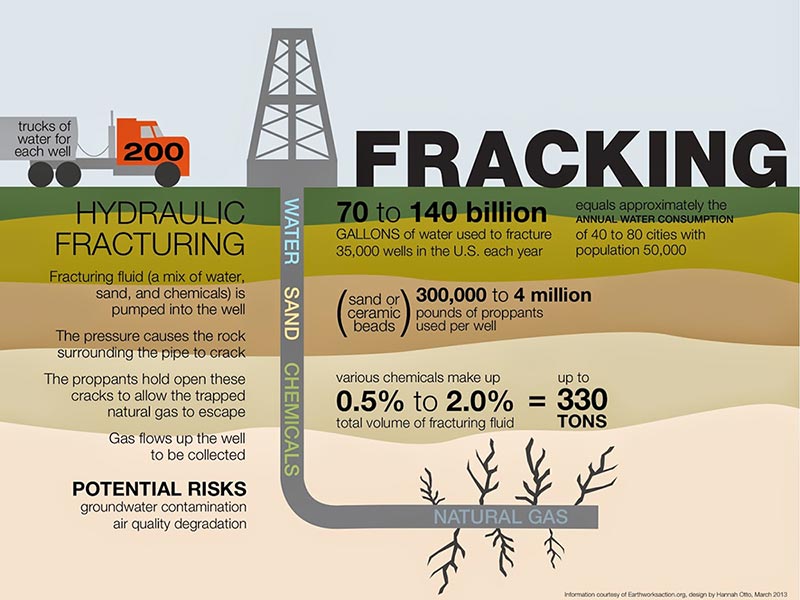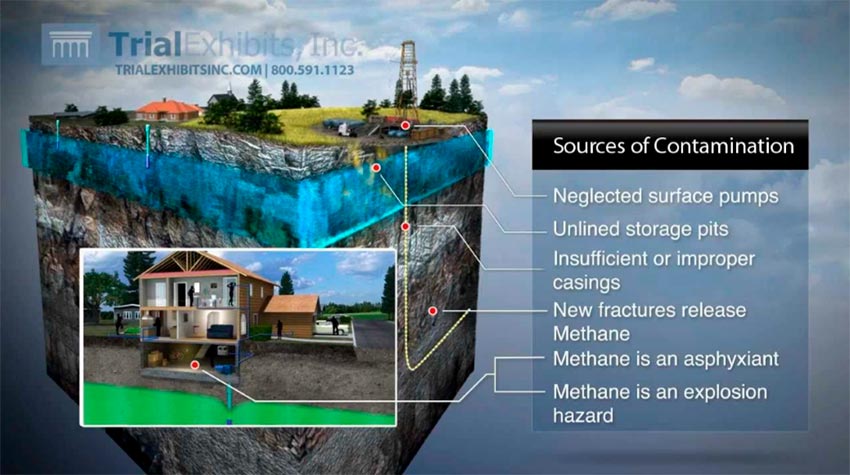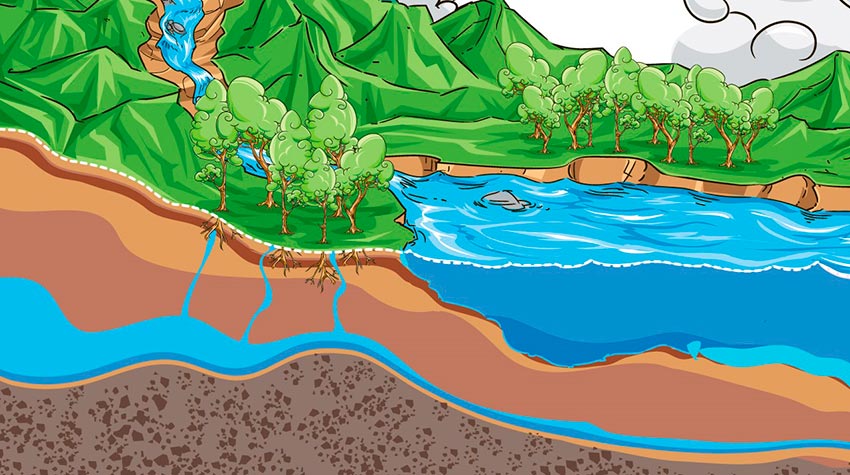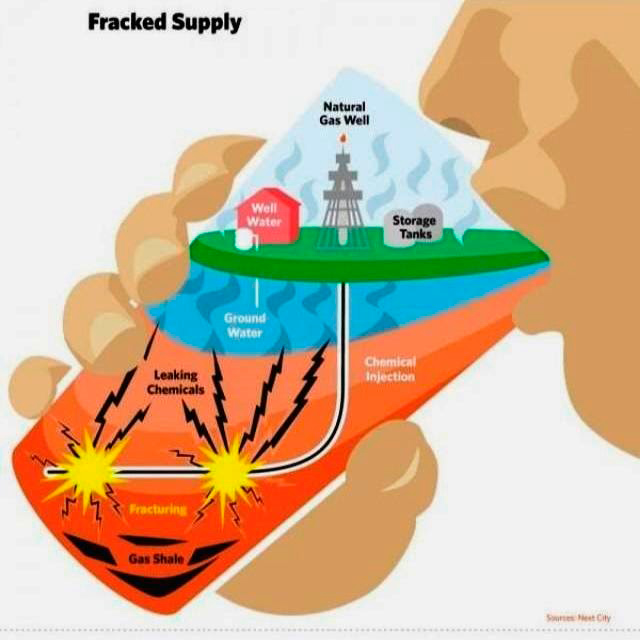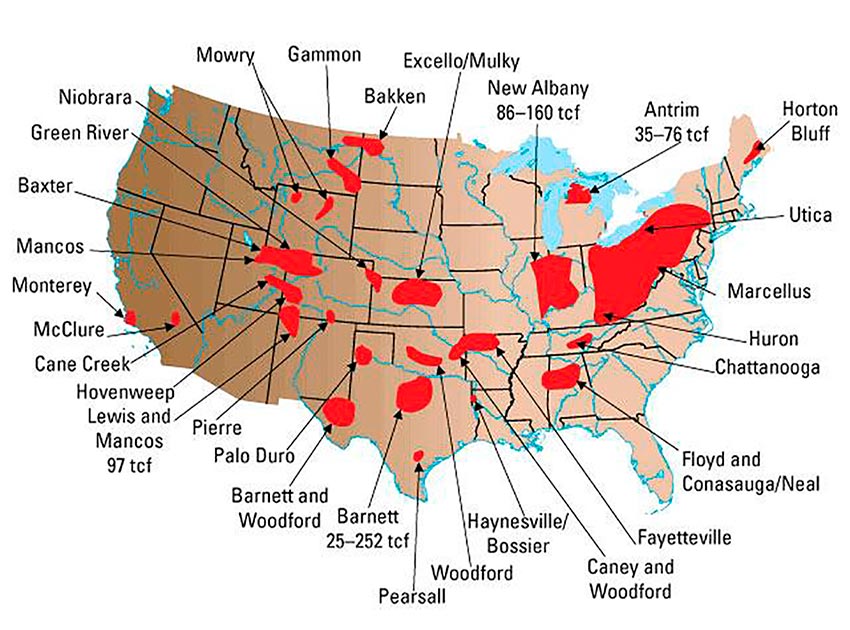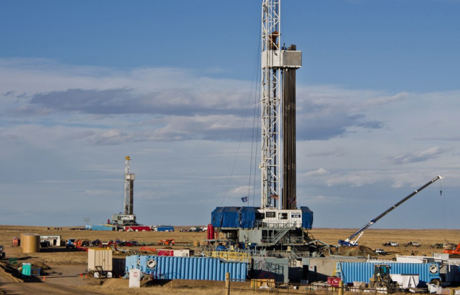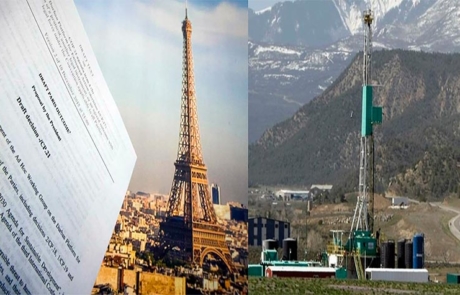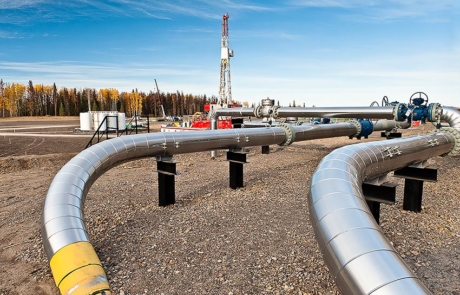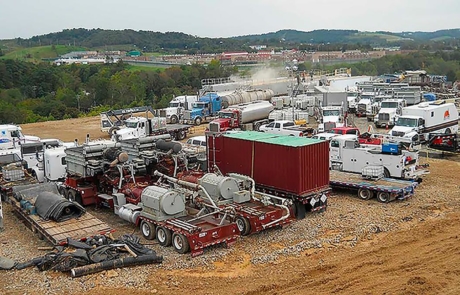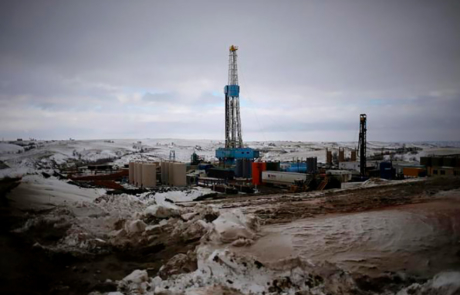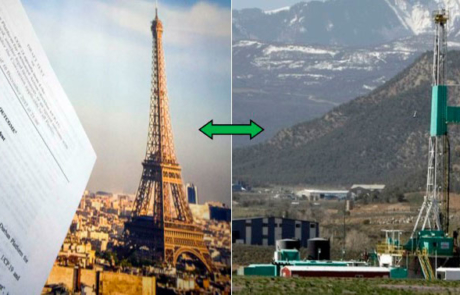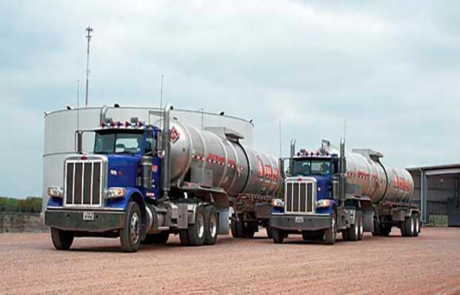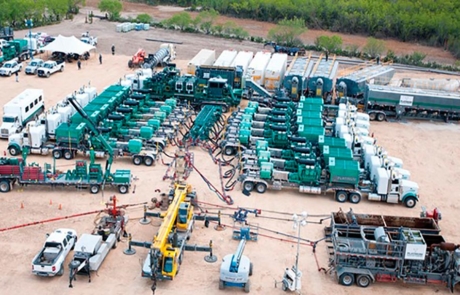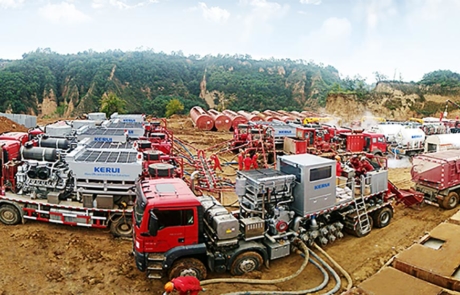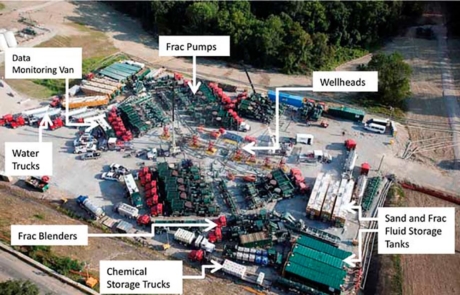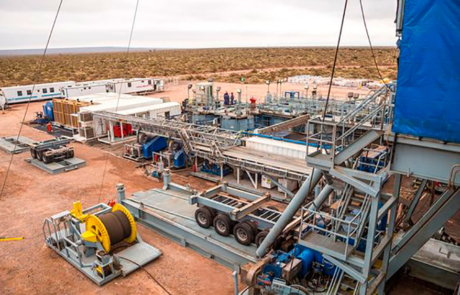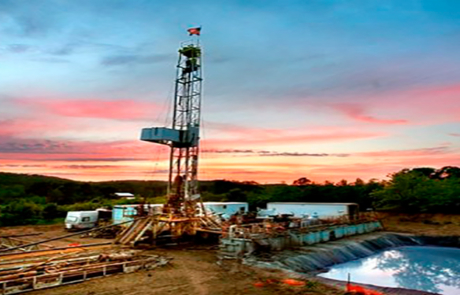3. How is the fracking procedure?
The technology of fracking or hydraulic fracturing consists of a combination of vertical and horizontal well drilling at depths that can exceed three kilometers to extract hydrocarbons trapped in low permeability rocks. Once the objective shale mantle has been reached, a mixture of water, sand and chemical additives, some of them very toxic, is injected at a very high pressure. In the moment when the resistance of the rock is overcome, its fracture occurs, which is done in a controlled manner at the bottom of the well. The force of the water causes cracks in the core of the rock and it is the sand’s job to keep the fissures open so that the gas or oil can flow to the surface through natural upwelling. The process includes that the wells be intubated and cemented, both vertically and horizontally. The useful life of a well varies if the extraction corresponds to shale gas or shale oil. In the case of gas, the well’s life is short and the operation can only be carried out once, so it is necessary to drill many wells. In the case of shale oil, during the first three years there is usually “natural upwelling”, then you must resort to a traditional pumping device. Once put into operation, it is believed that a shale oil well can be productive for three decades. But this is not known for sure, because no well is old enough to prove it.
Other FAQs about Fracking
1. What is fracking?
2. What products are obtained with fracking?
3. How is the fracking procedure?
4. When was fracking first used?
5. Is fracking dangerous?
6. How does fracking affect the environment?
7. How does fracking affect climate change?
8. What are shale gas and shale oil?
9. In what countries is fracking done?
10. Are there regulations for fracking technology?
11. In which countries is fracking prohibited?
Other sections of Fracking

Fracking fever, a real threat to Paris Agreement
The failure of the Paris Agreement would be the failure of Homo sapiens. If we do not reverse the increase in global warming and we do not support sustainability on our planet, we will all be losers. There are clear indications that we are going in a opposite direction to the 2015 agreements, as can be seen in this paper. The increasing fever of the fracking, due to the cheapening of the processes of extraction…

Fracking or hydraulic fracturing
Fracking, or hydraulic fracturing, is an unconventional method of extracting oil and gas that requires vertical and horizontal drilling at great depths. The first commercial hydraulic fracturing was achieved as recently as 1998. Fracking is a very controversial technology since it prolongs the use of fossil-fuel hydrocarbons…

